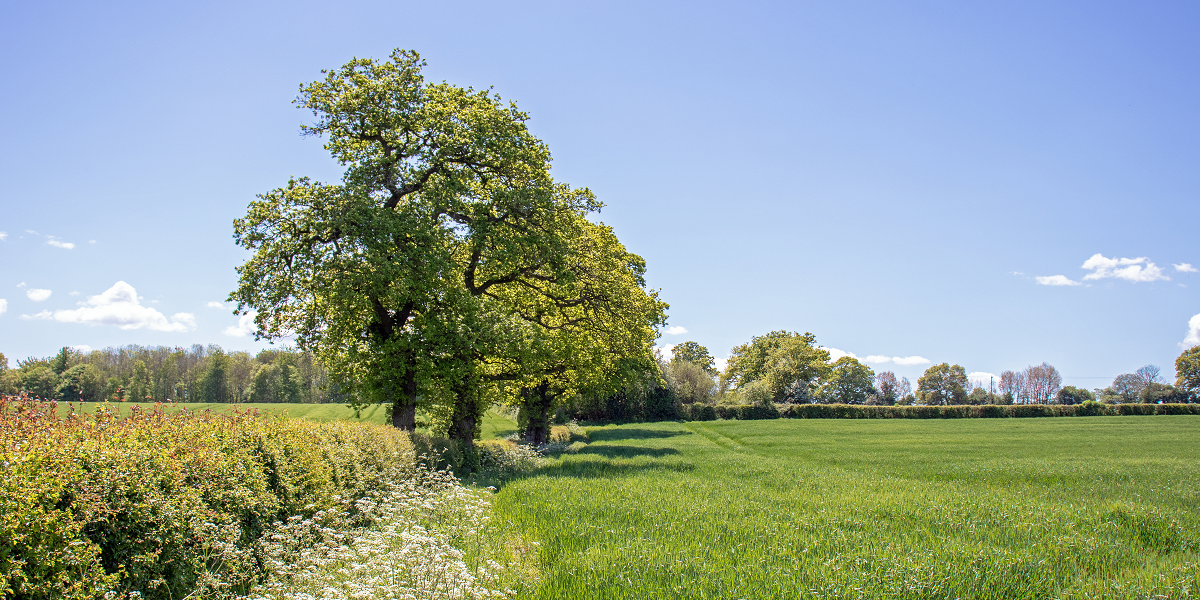Land Business Update | Week Commencing 24th July 2023
Farming
RPA clarifies penalties for HLS schemes under 5-year extension agreements
The RPA has updated its guidance to state that, ‘If [the] RPA find a scheme breach on an agreement extended in 2023, they may reduce the 2023 ES payment, but will not recover or apply penalties for previous years.’ Please contact Jonathan Armitage, our Head of Farming, if you have any questions.
More details on the Sustainable Farming Scheme for Wales
The Welsh Government has restated its intention to introduce a scheme with two levels: a ‘Universal’ level, offering a standard payment for different management measures; and an ‘Optional and Collaborative’ level, to offer additional payments as set out in last July’s proposal. Further information on the methodology used to set payment rates is expected as part of a consultation to be launched towards the end of this year. The government is also reviewing how the delivery of the Habitat Baseline Review could work and is most likely to adopt a unified approach to carbon assessment. The controversial requirement for all claimants to have 10% tree cover, including hedgerow trees, has been confirmed but it has been recognised that not all farms will be able to achieve this. There will be further consultation on how to deal with land unsuitable for tree planting and tenants who have no authority to plant trees. The Scheme will be implemented from 2025 under the new Agriculture (Wales) Bill, which is currently awaiting Royal Assent. Final details on the scheme design, including payment rates and rules, are expected next year.
Defra consults on upcoming hedgerow legislation
Cross-compliance regulations will no longer apply once delinked payments are introduced from 2024 onwards. Although many cross-compliance rules are part of UK legislation and will therefore remain enforceable, some aspects will disappear, in particular GAEC 7a which relates to the management of hedgerows. Defra is therefore consulting on the preferred approach to protecting hedges in England as well as enforcement methods. It proposes to either replicate the existing legislation in domestic law or to develop a new framework. The full consultation can be viewed here and is open for responses until 20th September 2023.
Lowland Agricultural Peat Task Force report and the government response
The Task Force, after 18 months of work, made 14 recommendations around the common goal of extending the useable life of lowland agricultural peatlands. The Task Force’s aim is to both to slow the loss of soil carbon and to support continued profitable agriculture. Key recommendations include:
- The government to incentivise raising water levels under Environmental Land Management schemes to reduce peat-related emissions.
- Adding lowland peat to the Peatland Code.
- Having Peat Sensitive Farming Advisers to improve land managers’ understanding of the value of keeping peat soils wetter.
- Roll-out of low-cost methods to measure and verify emission reductions resulting from changes in peat management.
- Create a new national forum for lowland agricultural peat.
- A programme to develop paludiculture as a commercial reality over the next 10 years.
The government has said that it will take forward action on all 14 recommendations and has announced two new funding pots for lowland peat projects. Lowland peat is important as it is currently responsible for 88% of all emissions from peat in England; this is a significant amount and represents 3% of all emissions in England.
Environment
Take 15 minutes to do the Big Butterfly Count
The count runs from 14th July to 6th August. There is a free smartphone app to record and submit your count.
Nature Restoration Law approved by European Parliament
The proposed law is controversial in that it places a strong emphasis on measures to restore biodiversity covering at least 20% of land and sea areas in the EU by 2030 and was not supported by mainstream farming lobby groups. Greenpeace has described it as the first major piece of legislation to protect biodiversity in the EU in the last 30 years. In order to pass the law a number of proposals have been either scrapped or changed, including on the restoration of agricultural eco-systems, including rewetting agricultural peatlands. The ability of citizens’ groups and other organisations to take legal action against Member States for failure to implement national restoration plans has also been removed. Its implementation will also be delayed until the European Commission has provided evidence of its effect on long-term food security. S&P comment: this is an interesting piece of legislation to follow as it is one of the key building blocks of the EU Green Deal and is a test of the seriousness, or not, of the EU in meeting its climate change and biodiversity commitments. Separately, the EU has also proposed a new law on soil health which would require member states to monitor the health of soils, fertiliser use and erosion, but stops short of country-level targets for improving soil quality.
‘Polluter pays’ fines increased
The government has removed the cap on fines for civil offences that the Environment Agency and Natural England can impose on operators, including land managers. It has said, in a bid to reassure farmers, that fines are just one of a number of tools, including advice and grants, that can be used to deal with pollution incidents. It also said that penalties will be proportionate to the degree of environmental harm and the operator’s ability to pay.
Dry June puts pressure on soils in England
There was below average rainfall in most catchments in England in June. Soils remain drier than would be expected for the time of year although river flows, groundwater levels and reservoir stocks are normal or higher than expected for the time of year. Rainfall in July is projected to be slightly above average although there is an increased chance of heatwaves from July to September.
Six nature recovery schemes announced in England
The schemes cover 176,000 hectares, so large areas, and have received £7.6m of funding from Defra to boost wildlife recovery and improve their resilience to climate change. The areas are East of Eden, Cumbria; The Lost Wetlands, Cheshire to Lancashire; Tees Estuary, Northumbria; Surrey Heathlands; Bradford and South Pennines, Yorkshire and North Lincolnshire; and Seaford to Eastbourne, Sussex and Kent. They are multi-partnership collaborative projects, which will involve local land managers.
Property
Over half of renters say that they are finding it difficult to make their housing payments
This compares with one in three mortgage holders, according to a YouGov poll. The same poll found that 54% of renters said that their landlord had increased their rent in the last 12 months, with the increase at 9%.
Temporary campsites allowed for up to 60 days under permitted development right changes in England
The change allows the campsites to open for up to 60 days in any calendar year, with up to 50 pitches and any moveable structure reasonably necessary for this purpose. The new right does not apply to scheduled monument sites, SSSIs or sites of listed buildings and does allow caravans (although campervans and motorhomes are allowed). Landowners must notify their local planning authority in writing before using the rights and provide a site plan with details of toilets and waste disposal facilities.






